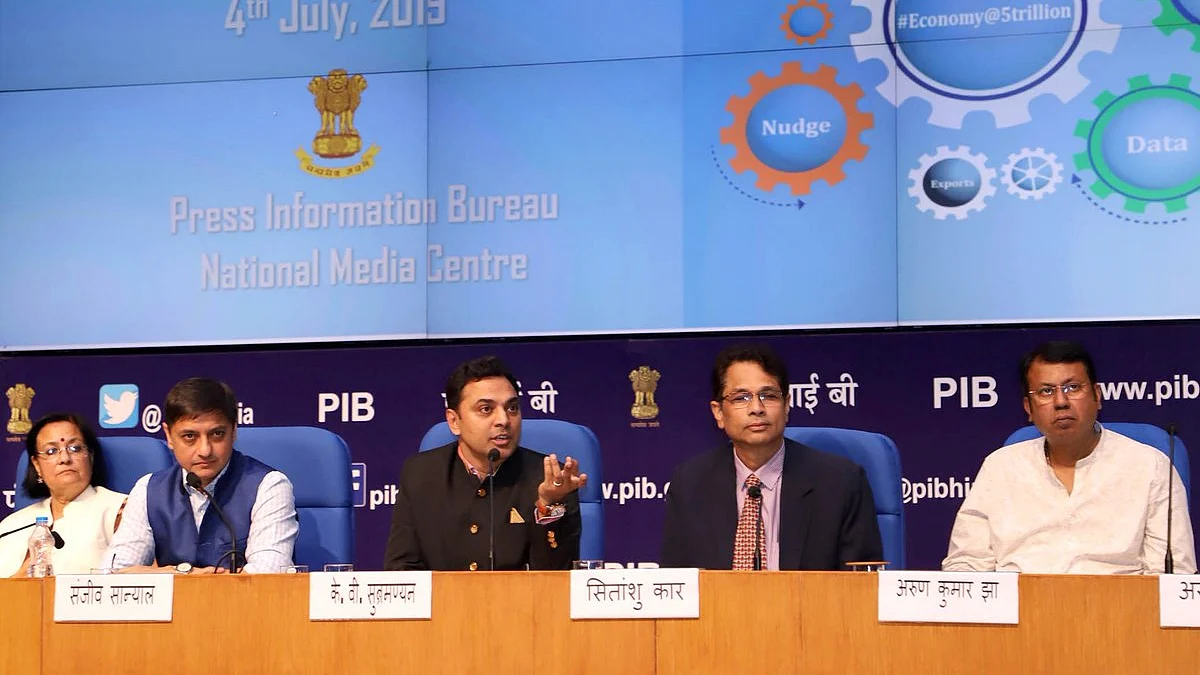Twitter finds the Economic Survey funny, err not so funny actually
Economic Survey quotes from scriptures, says privacy is elitist, sees no conflict between public good and private profit and relies on newspapers to draw a conclusion. Some commentators aren’t amused

The Economic Survey, 2019, released on Thursday on the eve of the presentation of the Union Budget, provides, as a commentator said, a harsh picture of the future. The survey also presented the ‘Nudge’ theory and advocates that people must be incentivized or coerced into changing their behavior.
Reactions on Twitter have ranged from outrage to amusement. Here is a sample of the comments:
As you go through the text of #EconomicSurvey2019, chapter after chapter it’s turning out to be joke book. Read this ridiculous box. Text from Hindu scriptures, Bible & Prophet are randomly used. Quoting out of context is obscene. Really poor stuff.
So @CEA office for #EconomicSurvey2019 not only takes us on a trip of the scriptures and mythology to draw prescriptions for the economy; it also relies like @NITIAayog on a few newspaper articles for some of its "solid" research. Where are we heading?
There is a chapter in Vol 1 of the survey titled "How does Policy Uncertainty affect Investments?" It has some interesting suggestions like the need to specify for how long a law or policy will not be amended, in order to provide certainty.
The chapter also says that economic policy uncertainty in India has declined from 2011-12 onwards. It provides a chart. The source of the chart, as given below the graphic, is http://www.policyuncertainty.
This is where things get intriguing. Go to that website, click on the India section and this comes up:
The page clearly says that the good folks over at Policy Uncertainty construct indices based on newspaper articles. Specifically, articles from 7 papers, and based on certain words and terms which appear in those papers.
Now I am no economist or data expert. But a chart in the #EconomicSurvey2019 is indirectly based on newspaper articles? This chart, which shows that policy uncertainty has reduced over the years in India:
The Economic Survey has lots of good insights & reflects and new academic vigour, but most of which I am unable to relate to the present economic environment
Happy to see #EconomicSurvey2019 focussing on legal sector reforms as a top priority. There are 3.5 crore pending cases. It says all cases will be cleared if we add 2,279 judges in lower courts and 93 in High Courts. All we need is filling in vacancies. It's that simple!
"Nudge theory" is not without critique.Fashioned as the creation of subtle architecture choice (the famous fly on a male standing toilet urinal) quite often it is nothing but a negation of autonomy. In practical terms quite often coercion eg. Aadhaar.
Privacy is a fundamental right. There is nothing “elite” about it. Ensuring and upholding every Indian’s privacy is the government's duty. India needs a Privacy Law. I strongly advocated for the same as minister. Unfortunately, it’s in cold storage since 2014
A CLEAR BANKRUPTCY OF IDEAS. THE HIGHER THE TAXES PAID THE HIGHER THE HONOR. BUT ALL BIG TAXPAYERS ARE ALSO BIG TAX EVADERS.
Look at the Economic Survey for a harsh picture of the future. And not just the South. Uttar Pradesh's popn will grow 2.7 times as fast as West Bengal, Bihar 3.8x. There will be 9m more people in WB in 2041 than in 2016; there will be 92m more in UP & Bihar.
"Consistent with the notion of data as a public good, there is no reason to preclude commercial use of this data for profit.
Follow us on: Facebook, Twitter, Google News, Instagram
Join our official telegram channel (@nationalherald) and stay updated with the latest headlines
Published: 05 Jul 2019, 9:35 AM